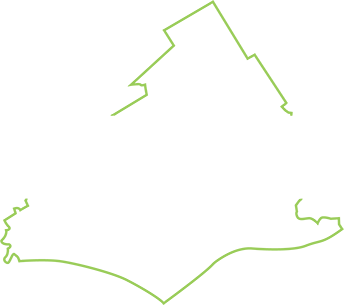No matter your age or level of computer savviness, it can be easy to fall victim to a bank or phishing scam. Even the most computer literate individuals get tripped up by cyber thieves. Bank scams, phishing hoaxes, and data breaches can be devastating, sometimes wiping an entire account of its savings or compromising personal information. In 2020, the Federal Trade Commission received more than two million fraud reports, with identity theft being the number one complaint. Scammers use various tactics to trick users into revealing sensitive information, like bank account numbers and passwords. It’s vital to take some time to learn about these common phishing scams so you can protect yourself and your money. Below we highlight several common bank account scams and how to avoid them.
1. Overpayment Scams
An overpayment scam typically involves an individual who provides services or sells products online. During one of these scams, someone will send you a counterfeit check or money order, typically for more than the amount owed. They will request you deposit the money into your bank account, then ask you to wire the difference back. Unfortunately, since the check was fake, you will not only have to pay your bank a returned check fee, but you’re also out the money you wired to them and the original cost of the product or service. To avoid an overpayment scam, always verify a check or the issuer by referencing the contact information on the bank’s website. You should also never trust checks or money orders based on appearance. Scammers are professionals at making them look legitimate and official.
2. Unsolicited Check Fraud
When an unsolicited check scam is occurring, a scammer will typically send you a check in the mail that you weren’t expecting. Once cashed, you could unknowingly enter into a legally binding contract, authorize a large purchase, or sign up for a long-term commitment that you didn’t initiate. To avoid this, pay close attention to the fine print on the front and back of your checks and refrain from blindly accepting checks advertised as “free money”.
3. Automatic Withdrawals
Automatic withdrawals make life easier; you can enable your bank to make recurring payments to cover expenses like your mortgage, utility bills, and insurance premiums. An automatic withdrawal scam happens when you receive a phone call or email requesting access to your bank account to qualify for a free trial, special offer, or to collect a prize. Once you read your checking and banking information to the scammer, they begin withdrawing money from your account by putting it on a demand draft. A demand draft is processed like a check but doesn’t require a signature. To bypass this scam, verify all offers you receive; if it’s too good to be true, it probably is. You should also pay close attention to your daily bank transactions to spot discrepancies.
4. Check Cashing Scams
Check fraud is one of the most common bank account scams. Another scam involving checks is when a scammer approaches an individual outside of a bank asking if they will cash a check. The unassuming victim cashes the check, pulls the funds from their account, and hands over the cash to the scammer. Because it was a bad check, it won’t clear, and the funds are held against the unassuming individual.
5. Phishing
Phishing involves scammers using email, text, and phone calls to trick individuals into verifying their personal data, like bank account numbers, Social Security numbers, passwords, or debit card information. With this information, they can access your accounts, like email and bank data. Phishing scams look as though they are sent from trusted sources or companies you may already know. Generally, for a phishing scam to work, you must click on a link confirming your information. Avoid clicking on email or text links from unknown senders.
How BHCU Can Help You Avoid Phishing Scams
It’s important to never share your personal information, like your credit card, bank account, and Social Security numbers, with anyone you don’t know or trust. If a bank or phishing scam happens to you, one of the membership benefits that BHCU offers is identity theft protection and recovery services to keep your account safe. If you suspect fraud on your BHCU account, contact a BHCU representative or call 610-595-2929 today.






